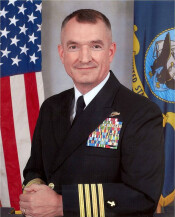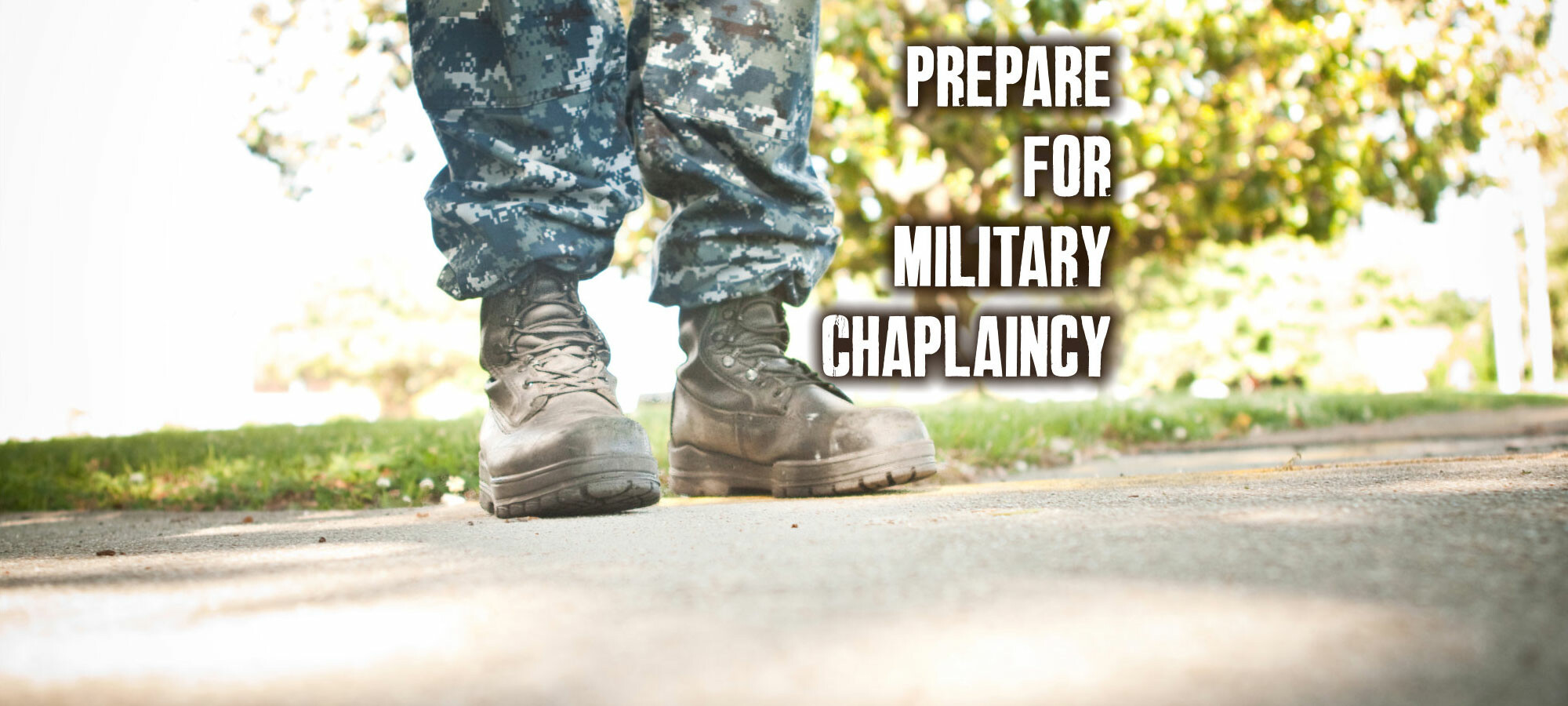This post was written by Captain Steven D. Brown, an adjunct faculty member at VBTS. He began serving as a military chaplain in 1987, and he retired from naval service on February 1, 2013.
2 Timothy 2:15: Study to shew thyself approved unto God, a workman that needeth not to be ashamed, rightly dividing the word of truth.
Proverbs 27:17: Iron sharpeneth iron; so a man sharpeneth the countenance of his friend.
These two verses summarize the two most important goals in a seminary education. The accurate exegesis and application of a text is foundational to effective ministry. You must know the text, teach the text, and live the text. As it relates to military chaplaincy, I am thankful that VBTS offers the 72 credit hour Master of Biblical Studies for Chaplaincy that includes the study of the Greek text. However, I want to challenge aspiring military chaplains to consider the 96 credit-hour Master of Divinity.
 As a former Associate Pastor of three years and retired Navy Chaplain of 27 years, I most strongly recommend that you do not take "short cuts" in your seminary preparation for ministry. Although the Department of Defense only requires 72 credit hours for military chaplain candidates, the resident 96 credit hour Master of Divinity degree (including the study of the original languages) is still the most effective preparation for any full-time vocational ministry. While it is not possible for every seminary student to meet this standard, it remains THE standard. Anything less...is less! A Military Chaplain is a Pastor; he should prepare for ministry as a Pastor and be ordained as a Pastor. While not every tour of duty will include Chapel ministry with routine preaching responsibilities, the Chaplain remains essentially, a Pastor.
As a former Associate Pastor of three years and retired Navy Chaplain of 27 years, I most strongly recommend that you do not take "short cuts" in your seminary preparation for ministry. Although the Department of Defense only requires 72 credit hours for military chaplain candidates, the resident 96 credit hour Master of Divinity degree (including the study of the original languages) is still the most effective preparation for any full-time vocational ministry. While it is not possible for every seminary student to meet this standard, it remains THE standard. Anything less...is less! A Military Chaplain is a Pastor; he should prepare for ministry as a Pastor and be ordained as a Pastor. While not every tour of duty will include Chapel ministry with routine preaching responsibilities, the Chaplain remains essentially, a Pastor.
Some seminaries have substituted numerous counseling courses to replace the study of the original languages. While there is need for counseling courses – and VBTS has built counseling courses into the MBSC and MDiv curriculum – the accurate understand of the Text through the study of Greek and Hebrew forms the most effective counseling advice you can give to any counselee. Scripture is sufficient.
As quotas for new Chaplains diminish, the best-prepared candidate for active duty in the military services is a Chaplain who has finished his seminary in residence, completed a 96 hour MDiv that includes original languages study, and had at least two years of post-seminary Pastoral experience. In your youth, take advantage of the sharpness of your mind, your learning capabilities, and the technology that exists to aid you today. Pay whatever price is needed to finish the “whole course.” Don't take "short cuts." Our Lord, and the people you will serve, are deserving of your best.
services is a Chaplain who has finished his seminary in residence, completed a 96 hour MDiv that includes original languages study, and had at least two years of post-seminary Pastoral experience. In your youth, take advantage of the sharpness of your mind, your learning capabilities, and the technology that exists to aid you today. Pay whatever price is needed to finish the “whole course.” Don't take "short cuts." Our Lord, and the people you will serve, are deserving of your best.
Captain Brown will be teaching three military chaplaincy courses at VBTS over the next 3 years - History of the Military Chaplaincy, Military Chaplaincy Ministry, and Chaplain as a Staff Officer.

